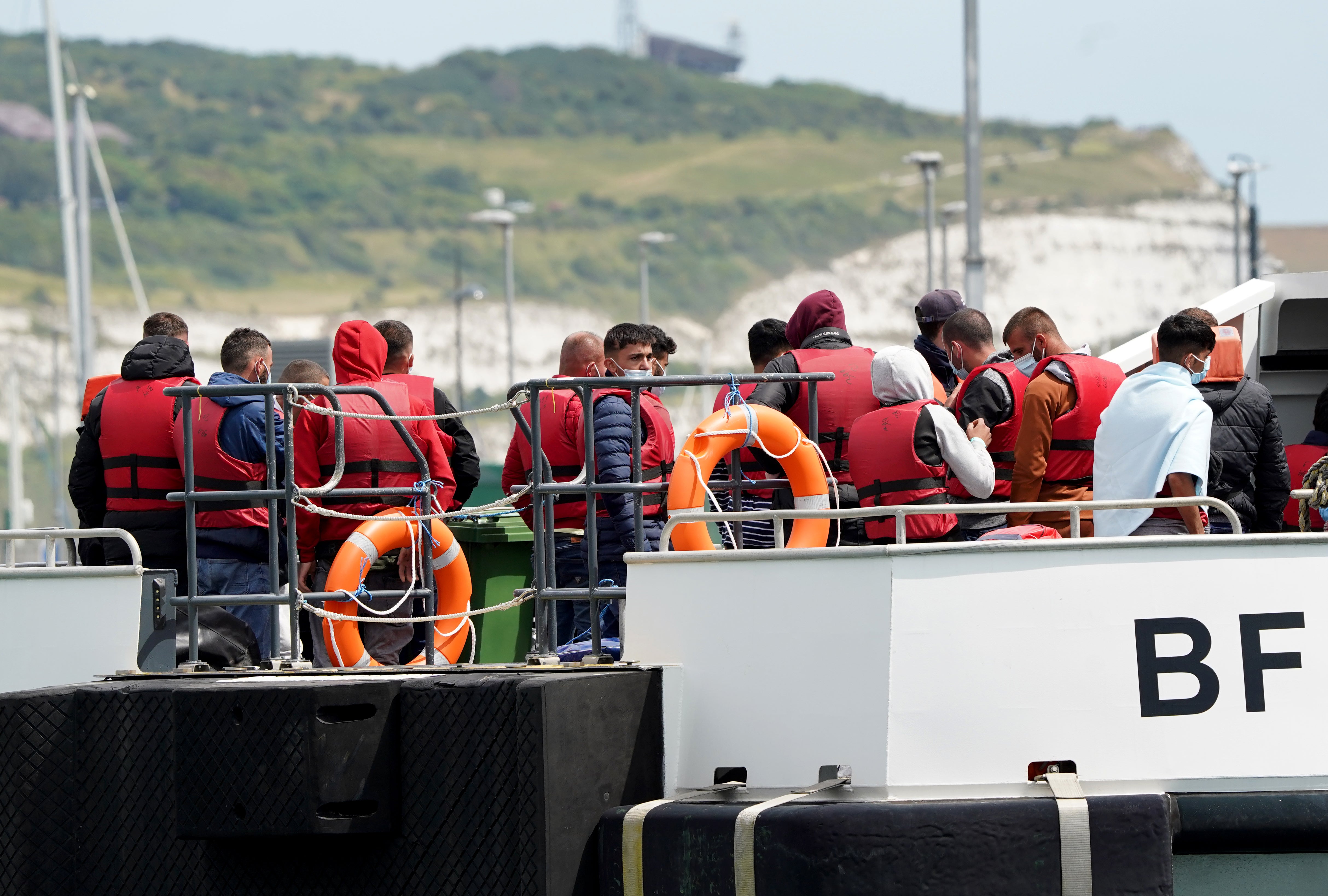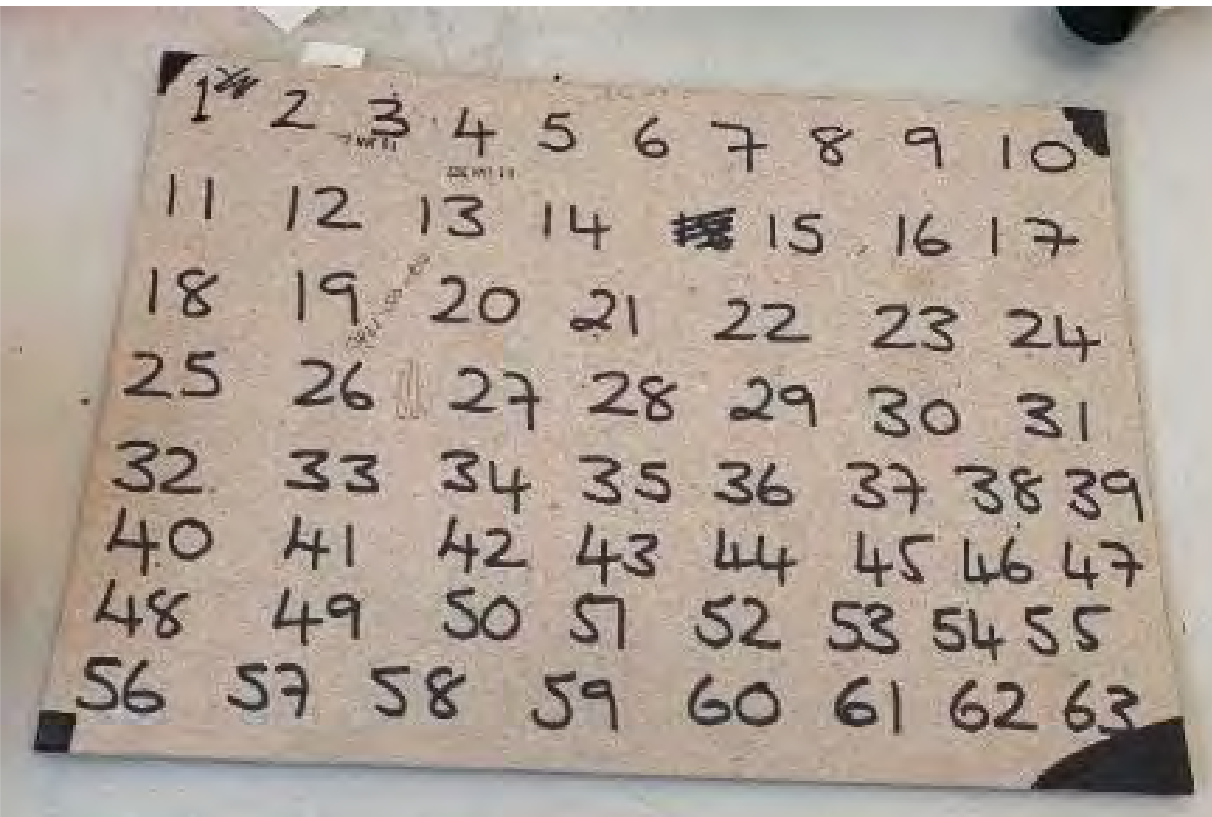No interpreters, no photos, no fingerprints - Home Office failing to make proper checks on Channel arrivals
Photos and fingerprints are not being taken for all migrants and hundreds have disappeared from hotels, writes Lizzie Dearden

Security and vulnerability checks for migrants crossing the English Channel in small boats are being missed because of failings by the Home Office, a report has found.
The Independent Chief Inspector of Borders and Immigration (ICIBI) revealed chaotic details of a “system failure” at processing sites in Kent, where asylum seekers are arrested without explanation, questioned without interpreters and made to indicate their age by pointing at cardboard signs.
The watchdog found that the government’s response had been “both ineffective and inefficient”, creating gaps in security procedures and leaving vulnerable migrants at risk.
A report published on Thursday, after its publication was delayed by three months by the Home Office, said photos and fingerprints were not always being taken from new arrivals, and that hundreds have gone missing from hotels.
At the same time, the identification of trafficking victims was limited, interpreters were not being used and migrants were being made to point to a cardboard sign displaying numbers to identify their age - “despite most coming from countries where the Roman alphabet was not used”.
The report said that on arrival, migrants - the vast majority of whom are asylum seekers - were immediately arrested as part of a set process but were not “consistently informed of the reason for the arrest and why it was necessary to arrest them”, or offered interpreters.
All migrants are searched following arrest, but the reasons were not being recorded as required by operating procedures, and officers were “unclear as to the legality or type of searches they conducted”.
The report painted a chaotic picture of processing, detailing how Border Force officers recording essential information “employed a mixture of speaking slowly in English, showing question sheets in different languages, using other migrants to interpret and asking migrants to write their details on Post-It notes”.
Some migrants’ names had wrongly been entered into Home Office systems as numbers, unintelligible strings of punctuation or even “wristband”.
It said the failure to consistently identify and safeguard vulnerable migrants resulted in some being wrongly detained, “including migrants with severe burns, wounds not covered or treated, an individual with a missing leg without a crutch, and a deaf individual who could not sign and had no method of communication without support”.
Chief inspector David Neal said: “These migrants crossed the Channel in dire circumstances. Many were vulnerable and at risk, including children and women on their own, and when they arrived in Dover the way they were dealt with was unacceptable.

“This is because the Home Office has failed over the past three years to move from a crisis response to having better systems and procedures in place and treating this as business as usual.”
The report was released a day after the publication of a separate review of Border Force, which found a series of systemic issues including with staff numbers, recruitment and training.
The review found that regarding small boat crossing, Border Force “has been drawn into a challenge that it is ill-equipped to deal with”, and that the overall approach to the issue had been “ineffective and possibly counter-productive”.
The Home Office told the ICIBI that 227 migrants had absconded from secure hotels between September 2021 and January 2022, many of whom had not had their fingerprints and photographs taken.
The inspectorate said that staff on their ground were “doing their very best” but being hampered by unreliable equipment to carry out security checks, and “inexcusably awful” data.
“Biometrics, key to locking in an individual’s identity, were not always recorded,” the report said, detailing how mobile fingerprinting units were 20 years old and sometimes broke or were not used because arrivals were too high.
Home Office data shows that between 1 September and 14 December 2021, the biometric data of more than 2,000 migrants was not properly recorded.
“Put simply, if we don’t have a record of people coming into the country, then we do not know who is threatened or who is threatening,” Mr Neal warned.
“The Home Office’s performance in delivering an effective and efficient response to the challenge posed by the increasing volume of migrant arrivals via small boats is poor.”
The inspection examined the initial processing of migrants arriving via small boats at the Tug Haven processing facility and its successor Western Jet Foil.
A new processing centre for migrants opened in January at a former Ministry of Defence site at Manston, also in Kent, which was not covered by the inspection.
It found that despite four years of rising Channel crossings, and negative reports by other watchdogs, the Home Office still considers the situation to be an “emergency” and was “in a constantly reactive state”.
Facilities and processes had “expanded piecemeal” and did not meet operational requirements, the report said.
It warned that the organisation charged with responding to the crisis, the Clandestine Channel Threat Command, was too focused on “strategic effects” such as the failed attempt to push boats back to France “at the expense of delivering security and dealing humanely with the here and now”.
The Home Office said that it had “transformed” how it manages small boat arrivals since inspectors visited the facilities.
“This includes the previously planned closure of Tug Haven and the movement to a two-site operation at Western Jet Foil and Manston,” a statement added.
“We have accepted all the report’s recommendations, the majority of which were already being addressed at the time of the inspection, and almost all this work has already been completed.”
The home secretary should have laid Mr Neal’s report in parliament by 25 April but did not publish it until after he publicly complained about the unexplained months-long delay.
The Home Office claimed that much of the report was now of “historic character and the criticisms identified reflect processes and procedures not followed under the new operation”.
At a press conference later on Thursday, Mr Neal said his report’s findings should not be described as “historic”, and that in a visit to Western Jetfoil in May migrants were still being asked to point at their age on the same cardboard sign.
“I think just parking these as yesterday’s business - there’s nothing to see here, it’s all been done, we’ve accepted the recommendations, move on, we’ve got a new system - I don’t think that’s productive for any organisation,” he said.
“Frankly, it’s pretty poor three years in and we’ve still got this sort of performance. It may be that the Home Office has improved.”






Join our commenting forum
Join thought-provoking conversations, follow other Independent readers and see their replies
Comments